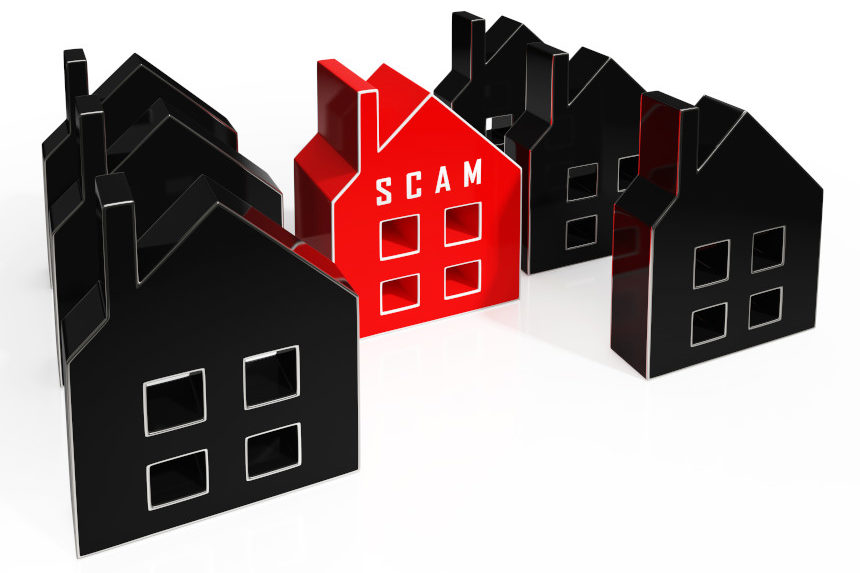Steve Weisman is a lawyer, college professor, author, and one of the country’s leading experts in cybersecurity, identity theft, and scams. See Steve’s other Con Watch articles.
Since the start of the coronavirus pandemic, more people have been going online looking for home, apartment, and vacation rentals rather than meeting with landlords in person. It can be easy and efficient ways to locate a home. Unfortunately, there are also many scammers attempting to rent out places that they don’t own. The Canadian Anti-Fraud Centre says that rental scams were one of the most common scams during the past year, and the problem isn’t limited to Canada.
Criminals will often go to Craigslist and other similar sites to post their phony apartment listings. The listing looks legitimate because it’s often a real online listing that has been copied by the scammer, who merely changes the contact information. The price is usually very low, which attracts a lot of potential renters. The renters may be told that the owner is out of the country and that there are many people interested in the property; if they want to be considered, they must wire money to the landlord immediately. Wiring money is a scammer’s first choice because it’s all but impossible to retrieve later. Unwary potential tenants wire the money and never hear anything further from the scam landlord. As for the money, it’s gone forever.
There are a number of red flags to look for in home rental scams. First, as always, if the price looks too good to be true, it usually is. Also be wary of landlords who are out of the country. Never send your payment by a wire transfer or a cashier’s check. Use a credit card, PayPal, or any other payment system from which you can retrieve your funds if the transaction is fraudulent. It’s usually best to deal with websites that specialize in home rentals, but remember that they can’t possibly monitor every listing.
A great and easy way to determine if the listing is a scam is to check out who really owns the property by looking up the owner through the local tax assessor. If it doesn’t match the name of the person attempting to rent you the home, you should not go through with the rental.
You can also check online to see if the property is listed for sale by a different real estate agent or owner or if other listings for that property show different contact information. This is an indication that the listing is a scam. Finally, search the name of the owner along with the word “scam” and see if anything comes up to make you concerned.
Home and apartment rental scams are not limited to long term rentals. Vacation rentals are also fertile ground.
Airbnb is a deservedly popular service that connects property owners with vacationers and other travelers in 190 countries around the world. Unfortunately, anything popular with the public is also popular with scammers, and reports are increasing about unwitting people renting a non-existent property. Many of the victims don’t find out that they’ve been scammed until they show up at the rental.
Generally, a telltale sign that the Airbnb listing is a scam occurs when the host asks to communicate with the victim off of the Airbnb website. They also ask for the money to be wired to their account.
Recently, a new, more sophisticated Airbnb scam has arisen. Computer savvy criminals have created a subscription service called Land Lordz, which assists less sophisticated criminals in victimizing Airbnb customers. Land Lordz helps crooks create and manage fake listings on phony websites that look like Airbnb. The fake listings are generally copied from legitimate Airbnb listings and include made-up reviews as well. The crooks eventually demand a deposit be wired to them.
The criminals who created Land Lordz charge at least $550 per month per user; each user of this scam service can manage more than 500 phony listings at one time.
In order to protect yourself from this scam you should only communicate with hosts through the Airbnb website and use the Airbnb payment system with a credit card. Airbnb does not forward payment to the host sooner than 24 hours after the guest checks in. Never use wired funds, certified checks, or any other method of payment other than a credit card through the Airbnb payment system to pay for accommodations. Always check your browser’s address bar to make sure that you are indeed on the real Airbnb website, and don’t click on links to go to a website, but rather always type in the website address independently. Airbnb has also instituted dual factor authentication, which I urge you to use for greater protection.
Featured image: Shutterstock
Become a Saturday Evening Post member and enjoy unlimited access. Subscribe now



